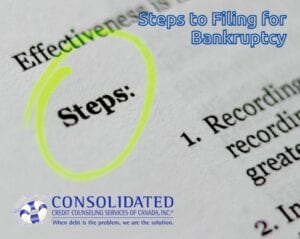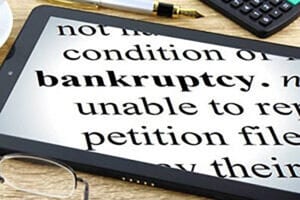If you have done any reading about personal bankruptcy, you know that while bankruptcy eliminates your consumer debts, it also damages your credit severely. Your bankruptcy will remain on your credit report for seven years, during which time you are a credit risk if you do not do anything to re-establish your creditworthiness.
As a credit risk, it is unlikely that you will be able to get new loans and other forms of credit at the most competitive interest rates. To compensate for potential losses from individuals with bad credit, most lenders charge bankrupt people interest rates that are incredibly high.
You cannot keep a creditor from knowing that you are bankrupt as long as the bankruptcy remains on your credit report. However, you can take steps to rebuild your credit that gives creditors reason to be more likely to lend money to you before your bankruptcy falls off your credit report.
As an added bonus, these steps will also help you to manage your money better than you did before bankruptcy, which will reduce your chances of having to file for bankruptcy or seek out another debt solution such as a consumer proposal ever again.
Live on a Budget
Failure to live on a budget is one of the most common causes of bankruptcy in Canada. Living within your means is a must if you want to avoid the trap of consumer debt and having to seek financial help yet again.
Before your bankruptcy is discharged, you will be required to take two financial literacy classes that will teach you how to craft a budget that will manage your spending but allow you to live comfortably within your means. Make sure to pay attention to any credit counselling advice that you gain in these sessions.
Pay Your Bills on Time
Many utilities and other companies will report late payments to the major credit bureaus, and this will harm your credit. Paying your bills on time, on the other hand, is a net positive for your credit history.
Get a Secured Credit Card
After your bankruptcy is discharged, you will probably find it difficult to qualify for a standard credit card that is not secured by an asset such as a savings account balance. Fortunately, most banks are willing to give you a secured credit card even if you are bankrupt. As the name indicates, an asset of some kind backs up a secured credit card, and your credit limit is usually tied to the value of that asset.
For example, you can deposit $500 in a bank and then the bank will issue you a secured credit card with a credit limit of $500. Credit bureaus this card’s report to the, and as you make payments on time, creditors will see that you are responsible with your money, and they will be more inclined to loan you money.
Save All the Money You Can
A good consumer credit counselling program will encourage you to save up an emergency fund and have as much as possible in savings. After a bankruptcy, having a sufficient balance in your savings accounts is even more important because you will not be able to pay for repairs and other necessities on credit until you reestablish your creditworthiness. As a bonus, you can use some of the money you save to get a secured credit card or personal loan.
Take Out a Small Registered Retirement Savings Plan Loan
Another way to reestablish your creditworthiness is to quickly repay a loan. Of course, you must discharge your bankruptcy first. Although you will not qualify for most loans, many banks let you borrow money to fund a Registered Retirement Savings Plan (RRSP) through an RRSP loan. To do this, you will first need to save $1,000 and deposit it in an RRSP.
Then, take out an RRSP loan for $1,000 and deposit those funds into your RRSP account as well, for a total of $2,000 in retirement savings. A contribution of that size will generate tax savings of several hundred dollars that you can then use to pay down your RRSP loan. This is positive on your credit report, and it will also give you a nest egg for the future.
Avoid Bankruptcy
At the end of the day, it is better to avoid bankruptcy and the hassle of having to rebuild your credit. Consider other debt relief options before resorting to bankruptcy.





